On a grey, gloomy Wednesday in Manhattan, Serena Williams is swaddled in bath towels to stay warm in an air-conditioned corner suite on the 41st floor of the Lotte New York Palace Hotel.
The room’s normally panoramic view has been obscured by dense fog, making it a challenge to see even across the street.
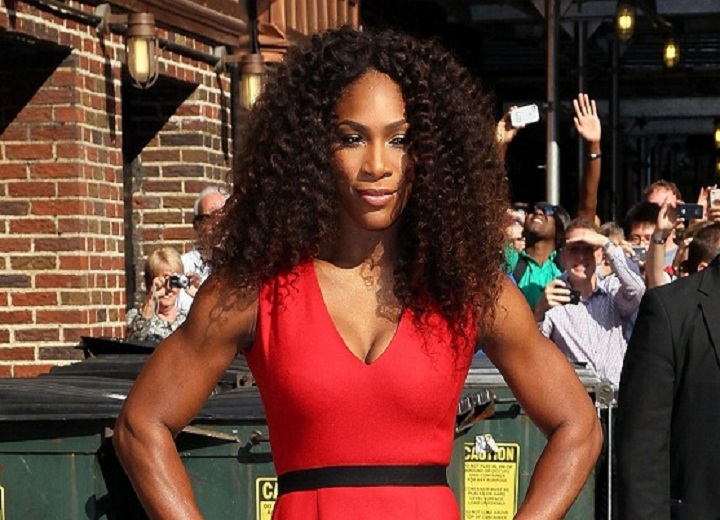
That seems an apt metaphor for Williams’s tennis career as she comes back from maternity leave at age 36. It remains unclear whether she will be able to return to dominance.
As she heads to Europe to start her clay-court season, she has played in only two tournaments in 2018, winning two matches and losing two and struggling, understandably, to regain full fitness.
But her personal life is a much clearer, blue-sky matter. She is newly married to Alexis Ohanian, the internet entrepreneur and co-founder of Reddit, and is embracing the challenges of motherhood with their eight-month-old daughter, Olympia.
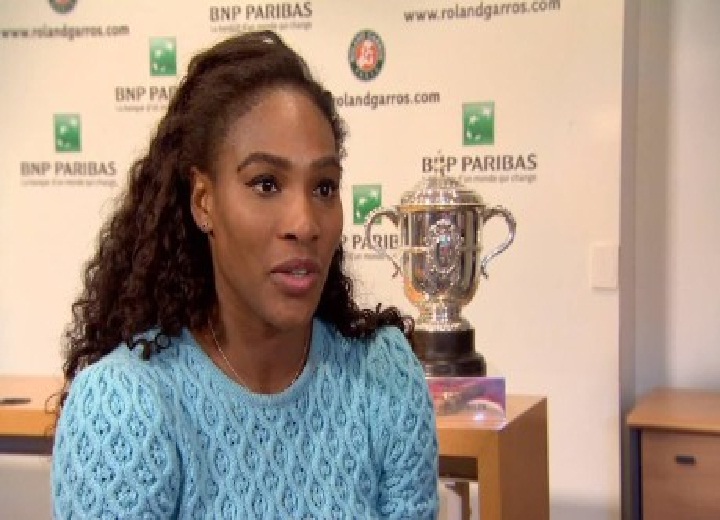
“We haven’t been apart from each other more than 24 hours, ever,” Williams says of her daughter, whom Williams’s longtime fitness trainer, Mackie Shilstone, calls Baby O.
Williams’s private sphere is about to become much more transparent with the premiere on Wednesday of a five-part series on HBO called Being Serena, which tracks her pregnancy, her life-threatening postnatal problems and her comeback in unvarnished fashion.
The cameras follow her and Ohanian through some of the most intimate moments of their lives: even into the delivery room during Olympia’s birth by caesarean section as Ohanian murmurs, “So proud of you,” into his wife’s ear. That is only moments before they get their first look at their new “team-mate”, Williams’s splayed fingers mirroring Olympia’s outstretched arms with a clear, plastic barrier still separating mother and child. Olympia is soon placed on Williams’s chest and immediately stops crying.
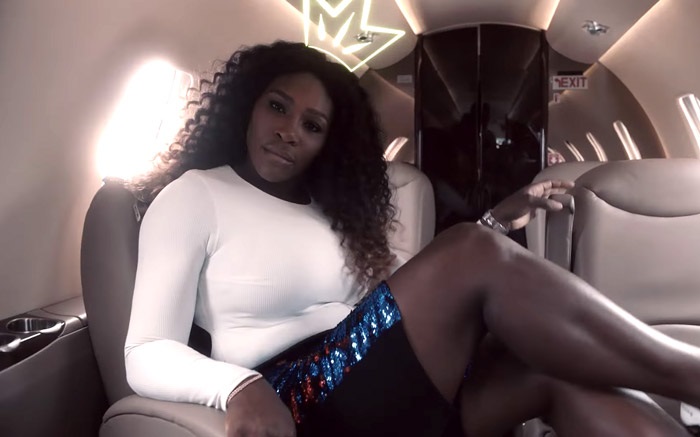
The scene and the series are all the more surprising in light of Williams’s longtime reluctance to share much publicly about her previous relationships – or even acknowledge them. But she is in a new phase, and she reveals herself with few limits: letting the public see her concerns, her fears, her puffy eyes, her extra pounds, her surgical scar and her sense of humour, which is rarely in evidence when she’s in her fist-clenching, turf-defending mode on the tennis court.
“A lot of people see me on the court, and they only judge and see that side of me, and there’s so much more to my life and to me,” she tells me. “That’s not me, actually to be honest, on the court. As much a part of my life as it is, I become a different person when I play tennis. The second I step onto the facilities, the grounds, I become a different person, and the second I step off, I’m back to being Serena, no pun intended.
“So I thought it would be interesting, while we were going through this process, if I just took all the curtains away, and I was just myself.”
‘Super-organic’
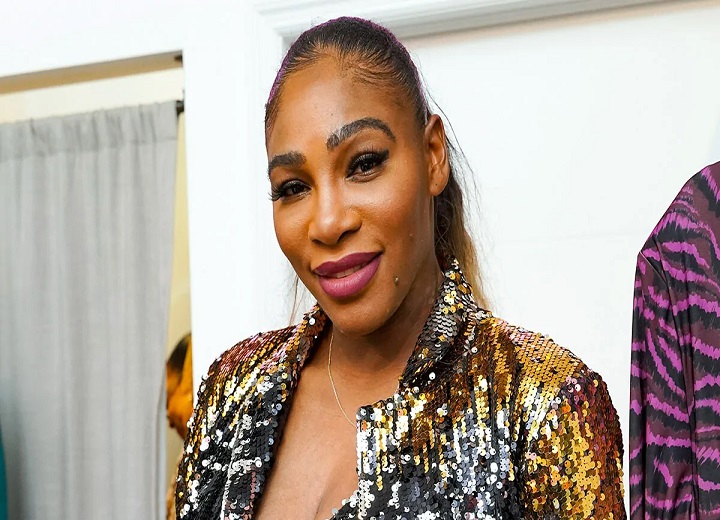
Williams says she was the one who initiated the process with the HBO series. “It was super-organic,” she says. “When I found out I was pregnant, I was saying, ‘I really want to get some footage of me,’ because I remember my dad had all this film when we were younger, all this cool footage, and I wanted to start this journey for Olympia, even though she was the size of a raspberry at the time.”
She shared the thought with her agent, Jill Smoller. “HBO got wind of it, and they said, ‘We would love to do it for you,’” Williams says. “My original idea was to do more just Olympia stuff, and then I thought if we’re going to do this, let’s go all out.”
Mission accomplished, though some will certainly wonder whether some of this qualifies as over-sharing in an era seemingly dedicated to it. But there are scenes of raw, emotional power: above all, the moment when Williams has finally left the hospital after being treated for a pulmonary embolism and other blood-clotting issues in the harrowing days after delivery.
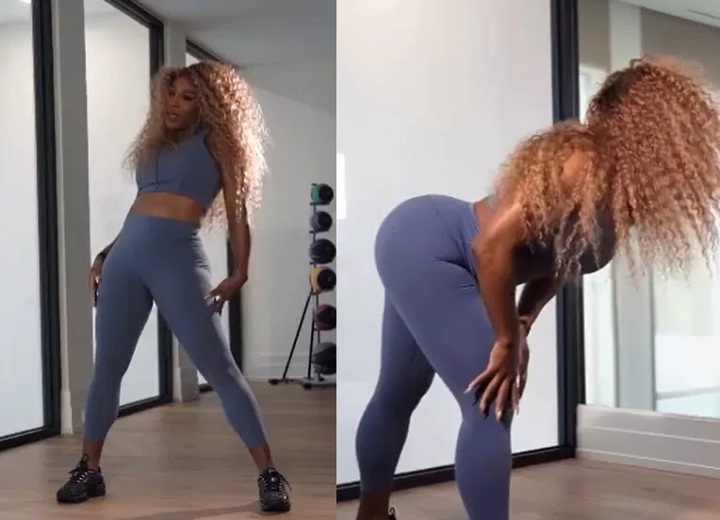
As she and Ohanian arrive at their house in Palm Beach Gardens, Florida, Williams emerges from the car, struggling to put one foot in front of the other as she lugs Olympia in a baby carrier with her right hand as if nothing – truly nothing – is going to stop her from reaching the front door.
“I didn’t want to let her go; I don’t want to let her go,” Williams explains to me. “I like to believe, and I would like other people to understand, that I’m no different than anyone else. I have the same struggles a lot of women have had, and a lot of women are probably determined to carry their baby in the door.
And a lot of women are determined to do a lot of the stuff that I do, and there’s literally no difference between me and them, with the exception of the side of me that just so happens to play professional tennis.”
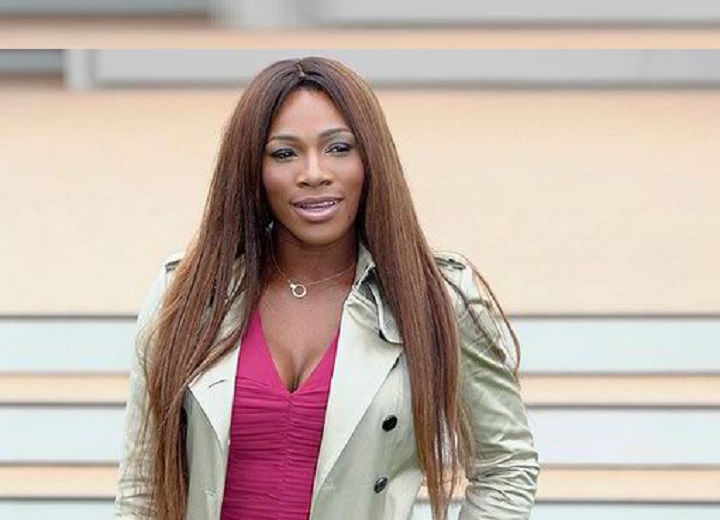
I never thought I would have married a white guy, so it just goes to show you that love truly has no colour
After the delivery, as Williams lies in a hospital bed applying makeup and looking into a hand-held mirror, Ohanian asks, “What did you say when someone said that our little girl was going to win Wimbledon in like 15, 20 years?” Williams, as if on cue, puts the mirror aside and answers, “Not if I’m still on tour!” to which a deeply amused Ohanian responds, “You’re ridiculous.”
There is much more of this banter, and at one stage, Williams expresses surprise that she and Ohanian “are such a good fit”. “I’m an athlete,” she says. “He’s a business guy. I’m black. He’s white. We are totally opposite. I think we just complement each other. I think we understand hard work in different ways.”
Racism
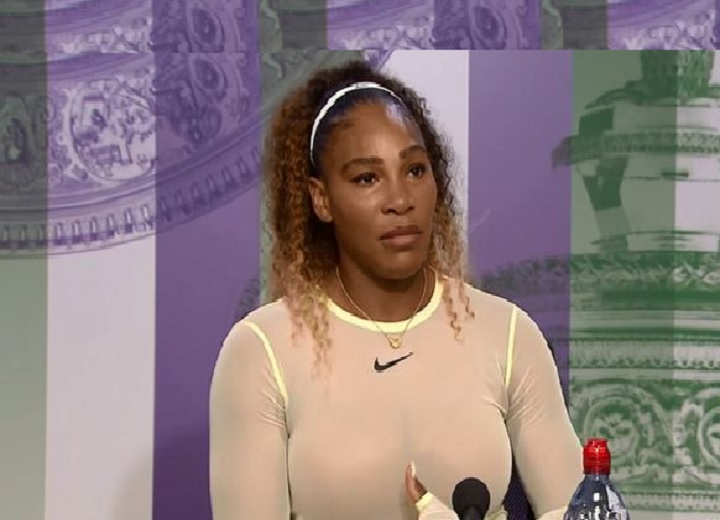
Anyone who has read Richard Williams’s 2014 memoir, Black and White: The Way I See It, knows how much resentment he felt about the racism he faced growing up in the American South and how intent he was on preparing his tennis-playing daughters to handle being outsiders in a predominantly white sport.
Racist comments that he said he heard at the tournament in Indian Wells, California, in 2001 were a big part of the reason Serena and Venus Williams boycotted the event for more than a decade.
I ask Serena, who had dated black men and white men, what message her marriage to Ohanian sent. “Oh my God,” she says. “Literally all I tell Alexis is, ‘well, you know, there’s such a difference between white people and black people.’
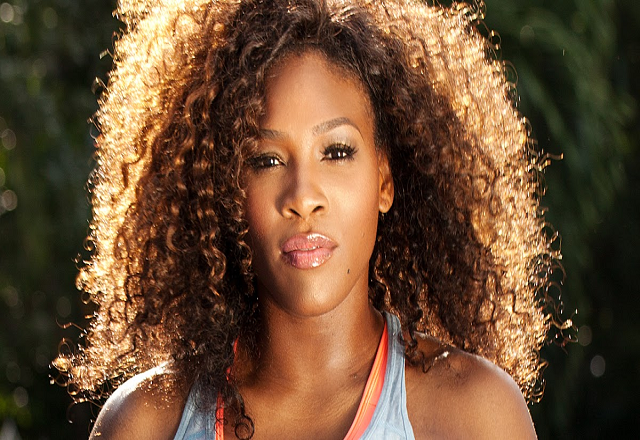
He always gets to hear about the injustices that happen; that wouldn’t happen if I were white. It’s interesting. I never thought I would have married a white guy, either, so it just goes to show you that love truly has no colour, and it just really goes to show me the importance of what love is. And my dad absolutely loves Alexis.”
She adds: “Ultimately I wanted to be with someone who treated me nice, someone who was able to laugh with me and someone who understood my life and someone that loved me.
“And you know, I’m sure there’s other people out there,” she says, pausing for effect and then laughing. “But you know, Alexis is the one I connected with, and I wouldn’t have it any other way.”
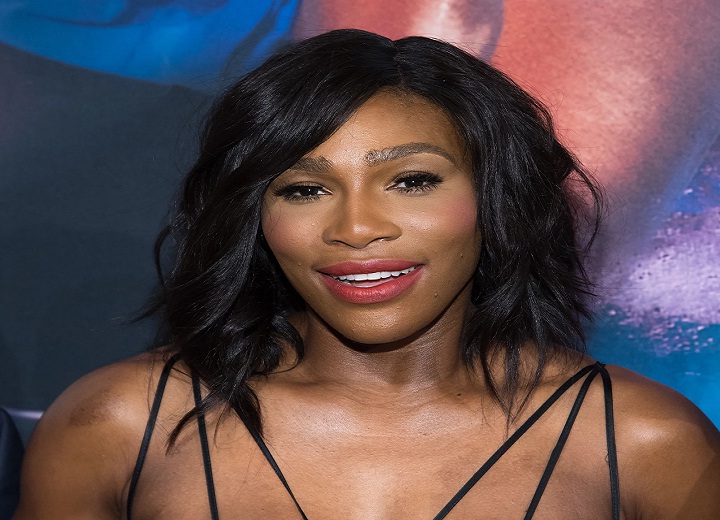
Williams’s comeback to tennis has not been without setbacks or indignities. She has needed more time than she expected to drop weight and go deep in tournaments. After her most recent match, an error-strewn first-round loss to Naomi Osaka at the Miami Open, Williams skipped the mandatory post-match news conference, incurring a fine, and headed straight for her car with her bags to drive home.
“I played . . . obscenity,” she says, pausing and managing to avoid the four-letter option. “So I just thought, after match point, I just thought there’s no need,” she adds, referring to the news conference.
“Such an easy shot, and I think I almost hit someone in the stands.” At the memory, Williams starts to laugh uproariously, the sound reverberating through the suite. “And the best part was I passed Venus, and Venus looked at me and said, ‘I get it; oh, I get it.’”
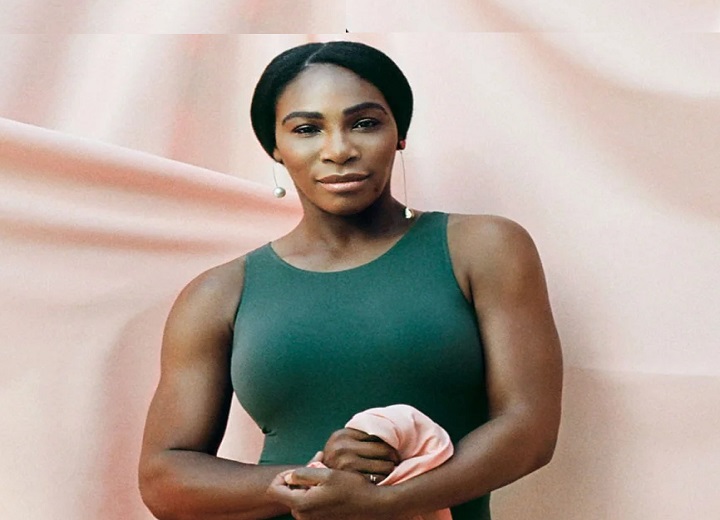
Setback
Venus also has declined to speak with the news media on some occasions after painful early-round losses, but Serena, like her big sister, is intent on using the setback for fuel.
“I feel like I set my expectations incredibly high, and I feel like, after Miami, I wanted to get more, not realistic expectations, but more reasonable expectations for me,” she says. “And so I took some time off and then started training like a lot, lot, lot, lot, lot, lot, lot, lot, lot, lot.”
If you want to have a baby and take a few months off or a year off and then come back, you shouldn’t have to be penalised for that. Pregnancy is not an injury.
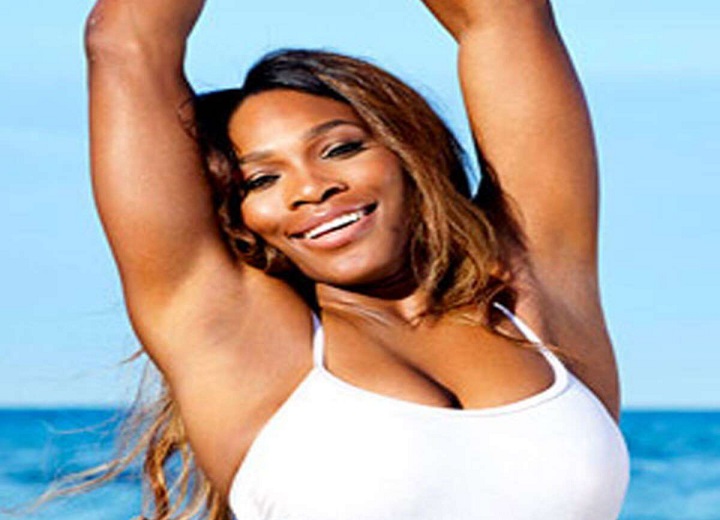
Williams’s eyes dart back and forth with each “lot” as if she were watching a long baseline rally. Shilstone, her trainer, says he told her after Miami: “Serena, you know how to play tennis. You are just not fit.”
More than five weeks after the Osaka defeat, Shilstone says, Williams’s fitness level is back up to “about 75 per cent” of what it was when she won the 2017 Australian Open. “Let me tell you, yesterday over at the hotel, we just did over 500 repetitions on the whole body with cords and cables,” he says.
“It was unbelievable, 500, and we did it in 45 minutes. Serena says: ‘Mackie, now that I have a baby, I can’t go two hours or whatever. We’ve got to get it done quick.’ And I said, ‘No, we’ve got to get it done smart.’”

Williams has a protected ranking of No 1 that guarantees her entry into tournaments. But, just like players returning from long-term injuries, she does not have a protected seeding that would help her avoid playing high-ranked players in early rounds.
There has been a push within the WTA to reconsider that rule for players returning from pregnancy. Williams is in favour of protected seedings, arguing that women should not be discouraged from having families during their careers.
“I think it’s more of a protection for women to have a life,” Williams said. “You shouldn’t have to wait to have a baby until you retire.
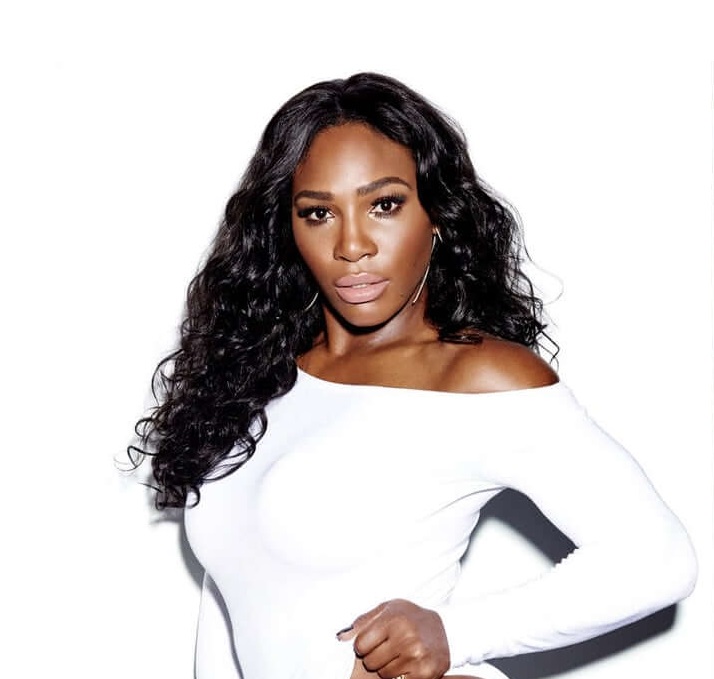
If you want to have a baby and take a few months off or a year off and then come back, you shouldn’t have to be penalised for that. Pregnancy is not an injury.”
It certainly has cost Williams physically, though. She calls this comeback “the biggest challenge” of her career. “I never felt winded like that,” she says of her early practice sessions.
“And it felt like no matter what I do, the weight is taking forever to get off, and it was crazy. Finally I was able to get better, but it took forever.” – New York Times News Service